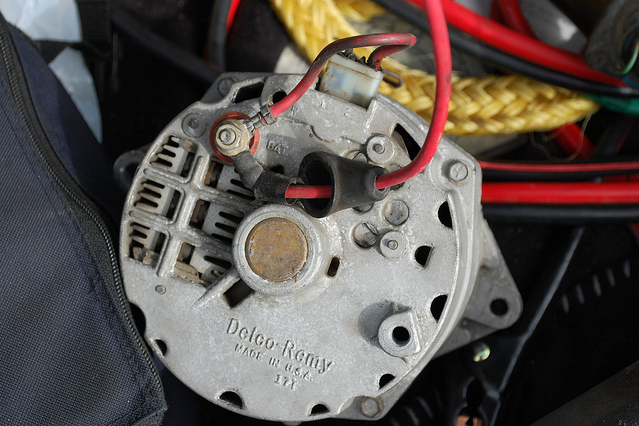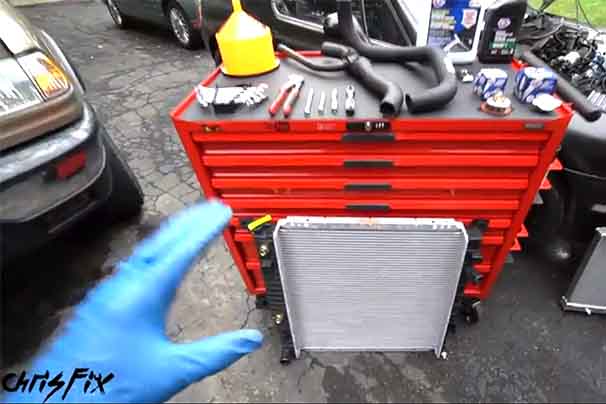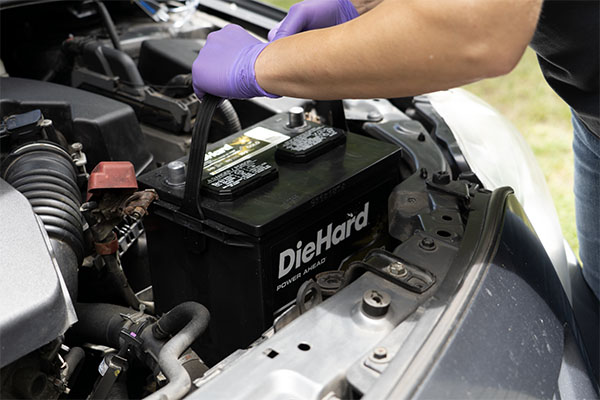
Source: Yuroslav Shuraev
With inflation picking up, gas prices are rising in the US. With record highs, the average cost of gas has risen by more than two-thirds in the past year and even though prices are starting to come down, it's been a bit of a shock for our wallets. With each trip to the pump, you might be thinking about ways you can reduce your fuel costs — especially if you're a serial road tripper.
Many of you may even have considered whether an electric car might ease the strain. For those in the market for a new car, going electric might seem more tempting than ever, but there's an important question that needs answering: is an electric road trip possible?
Before we compare costs, let's talk about electric car range.
How far can you go in an EV?
This depends on your EV of choice. There are some great long-range models out there that will do 300-400 miles, giving you the chance to cover plenty of tarmac before you need to stop and charge. If your road trips are more about getting from point A to point B than enjoying the journey with plenty of sightseeing stops, look for one of the Tesla long-range models; the 2020 Model S Long Range will do around 402 miles on a full charge.
Most EVs have a respectable estimated range of around 200 miles on a full charge. Here are some examples:
- 2019-2020 Jaguar I-Pace - 234 miles
- 2017-2019 Tesla Model X - 238 miles
- 2017-2019 Chevrolet Bolt EV - 238 miles
- 2019-2021 Nissan Leaf S-Plus - 226 miles
- 2019-2022 Kia Niro EV - 239 miles
What you need to think about

Source: Jaguar USA
Whether you're shopping for a used EV, buying a brand new one, or just curious, here are some things you need to think about when planning your trip and once you're out on the road.
The highway will eat up your range
All estimated range figures for EVs are based on a specific set of tests at a variety of different speeds. This mimics real-world driving assuming you're going to the grocery store, visiting friends, commuting to work, and doing a little bit of highway driving. What it doesn't take into account is lots of miles spent on the highway.
Even if you have an EV that will do 200 miles on 100% charge, you might not get that at highway speeds. Assume you'll get around 20% less, just to be on the safe side. This all comes down to wind resistance, so the faster you go, the more of your range you'll use.
There's an argument here for getting off the beaten path. The highway is great when you've got lots of miles to cover but the scenic route will allow you to do more miles across more interesting terrain.
Plan your stops
We're not quite at the stage where you can just drive and then pull into a charging hub when you're ready. An electric road trip takes a little extra planning, especially if you're traveling through areas of the US that aren't well served by the charging infrastructure. Apps and websites such as Plugshare and EVNavigation can help you plan your route and charging stops.
Knowing the stops along your route will help you avoid range anxiety but it should also allow you some flexibility too. One of the great things about a road trip is taking a dusty road because it looks cool.
You'll go further when it's warm
Electric cars will be able to do more miles on a hot day. This is great news if you're on a summer road trip as you should be able to exceed manufacturer range estimates. On the other hand, if you're traveling in winter or heading somewhere cooler, you might see your mileage drop.
Know the terminology
Your car's battery is measured in kilowatt-hours (kWh) while the speed of a charger is measured in kilowatts (kW). You can roughly estimate how long your car will take to charge based on these figures. For example, a 50kWh battery will take approximately one hour to charge at a 50kW charger.
Charging speeds are variable
Even if you visit a 50kW DC fast charger, you might not get the 50kW speed. From 0-20% and 80-100%, your car's battery management system will slow the charging rate in order to preserve battery health. Because of this, you'll actually save more time charging to 80% and then getting back on the road. Waiting for that last 20% will take a lot longer than you think.
Know your max charging speed
Even though there are 150kW ultra-fast chargers out there, it doesn't mean you'll be able to charge at that speed. The Chevrolet Bolt EV, for example, will only charge at a maximum of 50kW, even if you're plugged into a 150kW charger.
Understanding pricing
Some chargers will show the cost as per kilo-watt-hour (kWh) while others will show as per minute. There may also be session fees (cost for starting the charge) and idle fees (to stop drivers from taking up space while not charging). Look online or check the signage near the charger to get a better idea of how much a charge might cost.
Even a small EV is road-trip worthy

Source: BMW
Older EVs such as the Ford Focus Electric and BMW i3 will do around 115 miles on a full charge. Now, this might not seem like much but it really depends on how you like to travel. Some people focus on the destination, in which case a long-range EV is a good choice.
For those that focus on the journey, though, any EV will do the trick. Here are some quick tips:
- Look for chargers in cool places to maximize your downtime
- Don't try and cover hundreds of miles in a single day
- Stick to country lanes to get the most from a full charge
Can it save you money?

Source: Kindel Media
An electric road trip has the potential to save you money if you're smart with how you drive and where you charge. Let's start by looking at the types of chargers available to you.
- Level 1 - These are the slowest chargers and can take up to 24 hours to charge a car. Home chargers tend to be level 1.
- Level 2 - These destination chargers are a good choice if you're going to be stopping somewhere for a while. Look for them in parking lots, shopping centers, and at some attractions.
- Level 3 - These are DC fast charges and the speed at which they charge varies widely. Most will charge you to 80% in less than an hour.
A good rule of thumb is that the faster the charger, the more it'll cost. Location matters too, charging at a big highway hub will cost more than a DC charger that's hidden away in a countryside location.
A level 2 charger will cost anywhere between $1 to $5 for an hour's charge (which will get you around 20-30 miles). For a level 3 charger, you're looking at anywhere from $10 to $30 for an hour but that cost should give you a full charge.
If we compare two similar vehicles, the Hyundai Kona Electric and the 1.6L Hyundai Kona, you can start to see how an electric road trip might save you money.
2020 Hyundai Kona - FWD - 1.6L turbo engine
- Cost to drive 25 miles: $3.61
That's based on average gas prices but it's a little harder to find an average for the different charger types. Here's a breakdown of the three chargers:
Level 1 charging (based on $0.10 per kWh)
- Cost to drive 25 miles: $0.69
Level 2 charging (based on $0.20 per kWh
- Cost to drive 25 miles: $1.37
Level 3 charging (based on $0.40 per kWh)
- Cost to drive 25 miles: $2.75
Based on EPA estimates, average fuel costs, and average electricity prices per charger.
While all these figures come out cheaper than a gasoline car, there are some things to note. Firstly, some chargers cost as much as $0.60 per kWh, that'd bring your price per 25 miles to $4.12, making it more expensive to go electric.
Realistically, you'll be stopping at various charger stations on a road trip. If you can avoid charging at the expensive ultra-fast chargers, you'll be able to save money.
What about Teslas?

Source: Chad Russel
Any Tesla purchased before 2017 gets free charging at all Tesla superchargers, making the savings over gas quite clear. For anyone else with a Tesla, the price varies depending on where you are. Tesla estimates the average price to be around $0.25 per kWh.
That means a 2020 Tesla Model 3 (standard range) will cost around $1.61 for 25 miles.
How to keep costs down on a road trip
If you want to keep charging costs to a minimum on your next road trip, here are some tips.
Look for cheaper chargers
In your planning, look for places where you can do longer stops at the cheaper level 2 chargers. Even if you're limited to DC fast chargers and need the convenience of a quick top-up, choose the more affordable ones where possible.
Charge at your destination
Whether you're staying at a hotel, cabin, Airbnb, or friend's house, look for ways you can charge overnight. Many hotels have chargers but even a regular household outlet will give you an adequate charge for the next day. While you might pay extra for this, it's often cheaper than charging on the road.
Consider a charging subscription
Many apps and charging networks offer a subscription that could help you to reduce road trip charging costs. For example, if you're traveling down the west coast, a subscription with EVCS could save you money as you get unlimited charging sessions for just $49.99 per month at EVCS DC and level 2 chargers.
EVGO is another option with 1,200 chargers across 34 states. Members get discounted rates as well as the ability to charge for longer during off-peak times. For example, a charge might cost $0.34 per kWh for non-members but $0.29 per kWh for members. There's a monthly fee but this is considered pre-paid charging credit.
Electrify America, one of the largest public fast charging networks, also has subscription options. It varies by location but you could reduce costs from $0.43 per kWh down to $0.31 per kWh for members (with a $4 per month subscription fee).
An electric road trip might take a little extra planning with a few more stops, but it gives you the chance to save on fuel costs — money that's better spent on food and sightseeing!
Have you taken a road trip in an electric car? Let us know in the comments.








